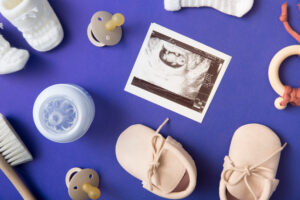Infant oral care is of vital importance. Tooth decay and other dental issues can quickly arise if infants aren’t given proper attention and care.
Start cleaning your baby’s gums daily using a washcloth, piece of gauze or finger brush – this will reduce bacteria that leads to plaque and tooth decay.
Brushing
Parents can give their baby’s teeth and gums the best start possible by regularly washing their mouth with a washcloth, particularly after each feeding and before bedtime. Accustoming your child to having his or her mouth washed will set them up for success with regular brushing in later years.
Begin by placing your infant comfortably on your lap, positioning their head so you can see inside their mouth easily. Use surgical gauze wrapped around your finger or soft washcloth to gently rub their gums to remove food debris and make them comfortable with having their mouth touched. Once they seem relaxed with having their mouth touched, transition onto using a brush designed specifically for children, with or without toothpaste (as soon as they show comfort with this step).
Keep in mind that babies are born with their full set of 20 primary teeth already hidden under their gum line in both jawbones. Although these will eventually fall out over time, it is vitally important that gum health remains healthy as this will prevent future cavities when their first tooth arrives.
At risk for babies is bottle decay, which causes their front teeth to rot and turn black. You can avoid this by never placing your child to sleep with a bottle; breastmilk or infant formula are preferable until they can eat solid foods themselves. You should also ensure their pacifier doesn’t come into contact with sugar or honey, and routinely washing and sterilizing their bottles and dummies.
Flossing
At any age, maintaining a healthy smile is paramount, beginning even before your first tooth emerges. Infants are born with all 20 primary teeth – which may or may not become visible until their gums start erupting – though these remain hidden until visible due to gum bacteria that cause decay and can impact how your child eats and forms sounds and words.
Before their first baby tooth emerges, you can help keep their gums clean by wiping them with a washcloth or piece of gauze at least twice every day. This will remove any leftover milk while decreasing risk for plaque buildup; additionally, this practice can help your baby adjust to having their mouth touched and cleaned, making the transition to brushing and flossing much simpler in future years.
Once your child begins developing teeth, you should begin brushing them once or twice daily with water and wiping their gums regularly, especially after feedings and before bedtime. At this stage, toothpaste should not be used, as this could irritate sensitive gums. Furthermore, be sure to consult your physician or dentist regarding giving a fluoride supplement that will protect both their teeth and gums against decay.
Snacks
As your baby begins cutting his/her first teeth, it is wise to introduce nutritious snacks into their diet to fill their bellies between meals. Be sure to stock a variety of yogurt melts, fruit slices, baby puffs and other finger foods that offer various flavors such as yogurt melts. In particular pouches made from natural ingredients such as organic fruits or vegetables as they contain no added sugars while boasting high amounts of protein without additional added sugars – look out for ones bearing either the HiPP or Demeter seal as these will ensure EU and/or organic certifications.
Each baby is different and may not be ready to enjoy finger food snacks before 9 months old, however once they can sit up unaided and support their head without assistance while mastering pincer grip (the ability to grip something between their thumb and fingers), start offering healthy non-choking pieces to your baby as finger foods to ensure safety.
Try whipping up an easy snack that’s rich in potassium and iron by mixing mashed bananas with old-fashioned oats and some chocolate chips, then shaping into balls or cookies for easy on-the-go snacks that your baby will love!
Dental Visits
Parents and caregivers should prioritize oral health visits for babies from an early age. According to the American Academy of Pediatric Dentistry, it’s wise for babies and toddlers to visit a dentist as soon as their first tooth comes in – or by their first birthday at latest – so their primary teeth remain healthy enough for proper eruption of permanent ones later. Healthy primary teeth help children chew and speak clearly while also setting the foundation for permanent ones to erupt properly over time.
At their first dental visit, a dentist will get acquainted with their infant patient and ensure their mouth and jaw are developing normally. He or she may ask parents or caregivers questions regarding family dental history, feeding and teething habits, whether the child sucks their thumb or pacifier and other questions related to oral care.
At an exam, your baby will be checked for signs of tooth decay and other dental problems, along with advice from their pediatrician regarding how best to care for their child’s teeth and gums. They’ll have their gums professionally cleaned as well, while providing guidance regarding proper homecare of teeth and gums. If they seem uncomfortable during an examination or seem restless or fidgety during a procedure, don’t be alarmed; these reactions are all perfectly normal! The dentist will try their best to make the experience pleasant as possible for all parties involved. Remember to schedule their next visit in six months to help prevent future dental issues!





